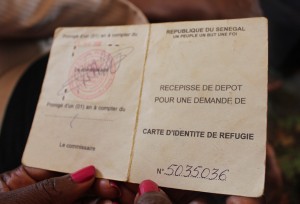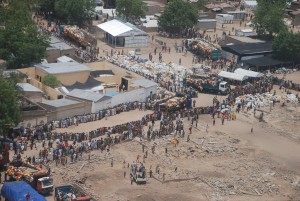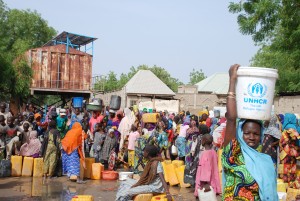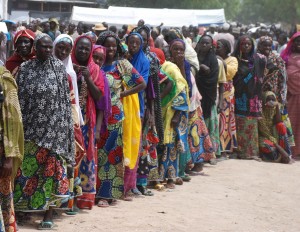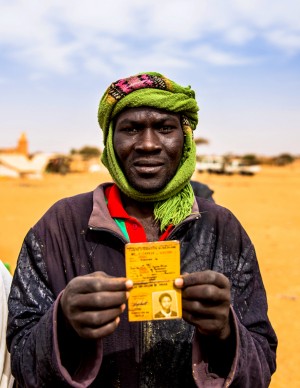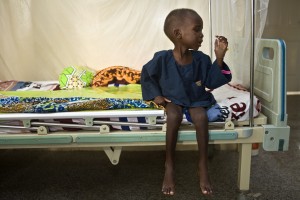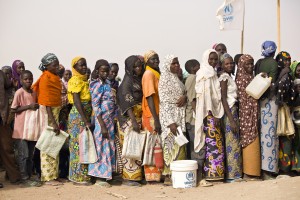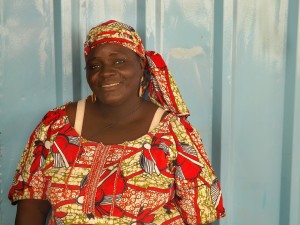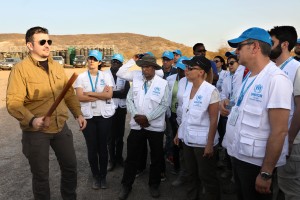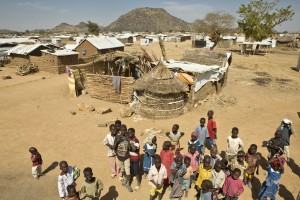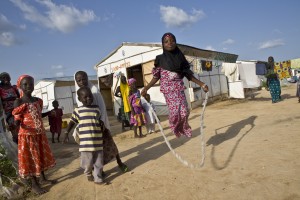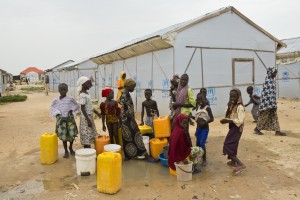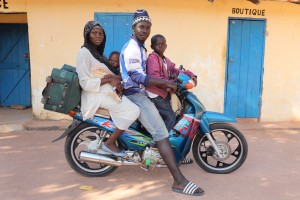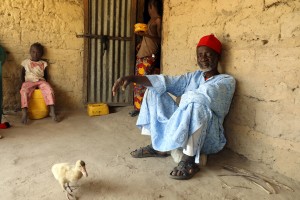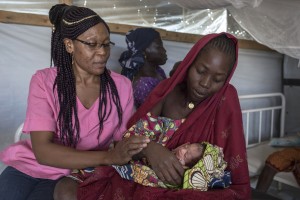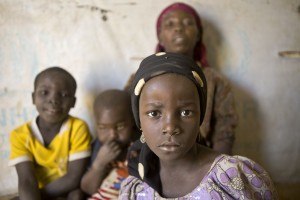Burkina Faso accedes to the 1961 Convention on the Reduction of Statelessness
A crucial legal and human rights goal has been achieved in the fight against the plight of statelessness with the adoption of a bill earlier this week.
OUAGADOUGOU, BURKINA FASO, 20 October 2016 (UNHCR) – Members of the Parliament of Burkina Faso adopted a bill earlier this week on the accession of their country to the 1961 Convention on the Reduction of Statelessness. This represents a major step forward in the fight against statelessness. While it is estimated that several million people are stateless or at risk of statelessness in West Africa, the scope of the phenomenon remains unclear in Burkina Faso. Efforts to estimate the numbers of stateless people in the country are still underway, but it is believed that groups such as ethnic minorities, unaccompanied children, cross-border communities and migrants are at high risk of statelessness. Furthermore, such groups of people run the risk of not be recognized as citizens of any State; unable to prove their nationality, they often struggle to have access to public and private services.
Within the Economic Community of West African States (ECOWAS), 12 member states – more than half of the ECOWAS countries – have already ratified the two international Conventions relating to statelessness. Burkina Faso became a party to the 1954 Convention relating to the Status of Stateless Persons in 2012, but the country had yet to accede to the 1961 Convention on the Reduction of Statelessness.
Following a debate during a plenary session of the National Assembly in Ouagadougou on 18 October, Parliament members unanimously voted in favor of accession to the 1961 Convention on the Reduction of Statelessness. “The adoption of this bill by the National Assembly is a concrete measure which is vital to fight the scourge of statelessness in our country”, highlighted the Minister of Justice René Bagoro.
UNHCR welcomes this progress, which represents a major political breakthrough. “We are very grateful for the country’s efforts to fight statelessness” said Gogo Hukportie, UNHCR’s Representative in Burkina Faso. “From a legal and human rights standpoint, it is a great achievement. We are delighted that these advances have been made in such a quick period of time, on the eve of the second anniversary of the UNHCR campaign to eradicate global statelessness by 2024.” *
At the international level, Burkina Faso will officially be party to the 1961 Convention after depositing the instruments of accession to the Secretary-General via the Office of Legal Affairs of the United Nations in New York. This formality is expected to be accomplished in the coming weeks. In the meantime, a lot remains to be done on the ground, notably regarding the identification, reduction and prevention of statelessness amongst the communities affected by this issue, including with those at risk of statelessness.
“Even if estimations are still underway, we know that many people inland in Burkina Faso and at border regions are not declared at birth and therefore do not have any proof of their identity” said Gogo Hukportie. “The issue of statelessness is also present in other countries in West Africa, such as in Ivory Coast, where we believe that around 2 million Burkinabe migrants do no possess any legal documentation to prove their nationality. Not only does this put them and their communities in a situation of high vulnerability, but it also constitutes a major hindrance for the sustainable development of the country and the entire region.”
In Burkina Faso, UNHCR has started to negotiate with national authorities for the inclusion of statelessness-related questions in the forms that will be used during the next national population census, which is scheduled to take place in the course of the following year. UNHCR is confident that it will help detect other communities at risk of statelessness in the country.
Furthermore, a mission of the Burkinabe authorities is to take place soon in Ivory Coast regarding the status of Burkinabe migrants who moved to Ivory Coast in the recent past and whether they are still at risk of statelessness. With the support of UNHCR, the delegates plan to identify, register and issue documentation (birth certificates and national identity cards) to people of concern.
Watch Bilal’s and Hawa’s story:
https://www.youtube.com/watch?v=jJC5GnTLb8Y
Producer: UNHCR / Paul Absalon ; Cameraman: Wouter Elsen for UNHCR
* Support the fight against statelessness: join our campaign #IBelong
http://ibelong.unhcr.org
http://kora.unhcr.org/west-africa-celebrates-first-anniversary-abidjan-declaration-eradication-statelessness/
http://kora.unhcr.org/stateless-nationality-story-mamadou/

